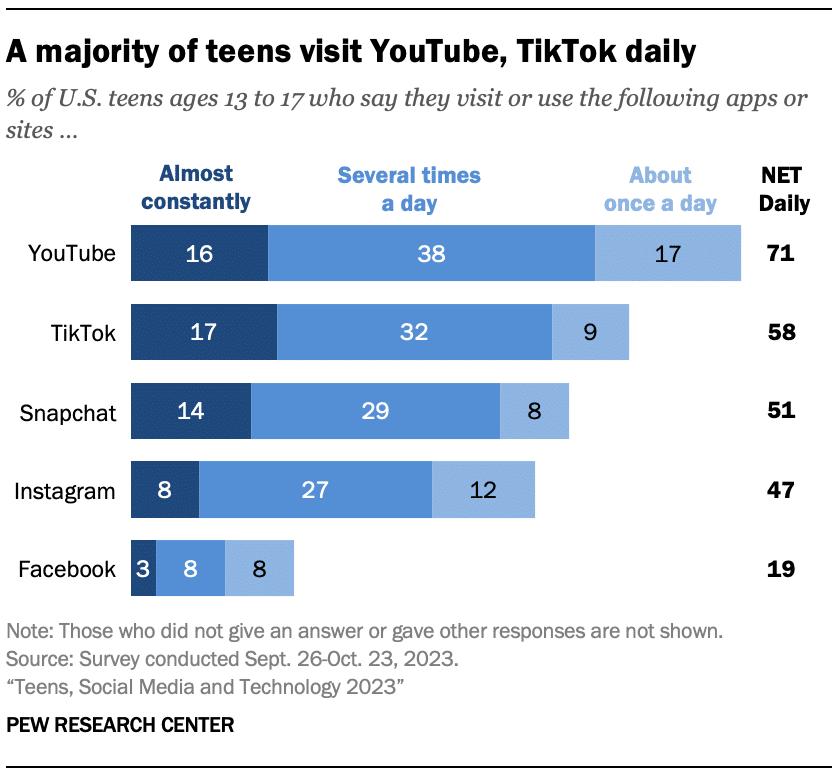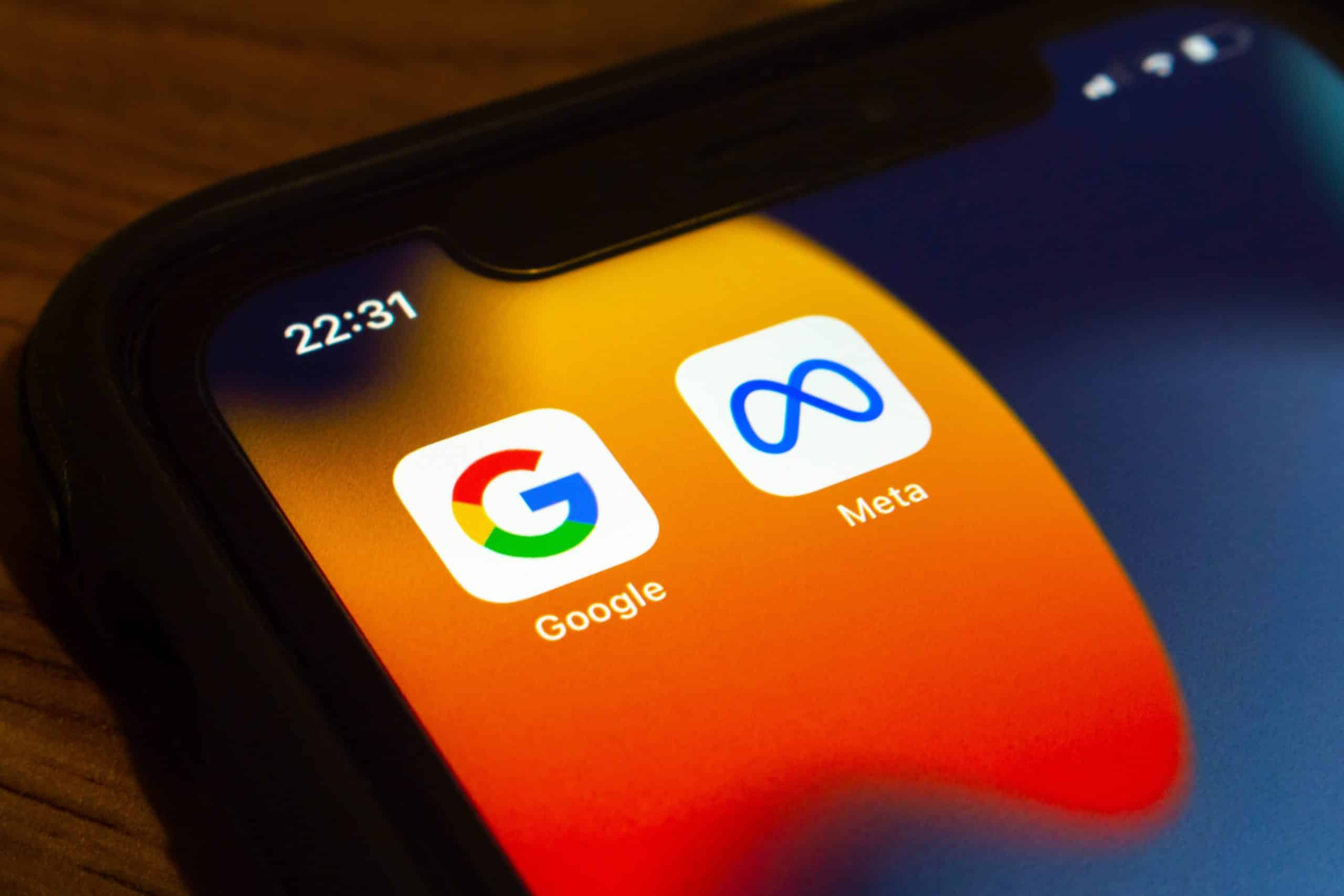While both Google and Meta Platforms compete for the same digital ad dollars, both these companies collaborated in a secret deal to target teenage YouTube users with Instagram ads. The move went against Google’s stated policy of not targeting kids with targeted ads. As for Meta, which owns Facebook, WhatsApp, and Instagram, it is just another case of the company being in bad press over its policies.
According to a Financial Times report, Google and Meta developed an advertising campaign for YouTube users between 13- to 17-year-old where they were shown Instagram ads.
According to Google’s policy, it disables personalized ads for users who are aged below 18 while also restricting “sensitive ad categories” for them. It adds that paid ads should not be deceptive and misleading and “must not incite children to purchase a product or urge parents or others to buy the item.” The policy looks good in the letter – but in spirit, Google failed to protect teenagers from personalized ads.
There is a loophole in Google’s system where some users are labeled as “unknown” even as Google knows that the group is skewed towards kids. The Instagram ad campaign was deliberately targeted towards this group which means that Google showed targeted Instagram ads to YouTube users below the age of 18 which is against its stated policy.
Also, documents seen by the Financial Times show that the company took steps to ensure the real intent of the Instagram ad campaign was not revealed.
How Did Meta and Google Ran Targeted Instagram Ads for Kids on YouTube
For the ad campaign, Meta and Google worked with Spark Foundry which is the US subsidiary of France-based advertising company Publicis. The companies initially launched the pilot marketing program between February and April in Canada and after its apparent success, trials began in the US in May.
#FPWorld: Google and Meta secretly collaborated to target advertisements for Instagram to teenagers on YouTube, bypassing Google’s own rules for treating minors online.https://t.co/YkZMp40UCt
— Firstpost (@firstpost) August 8, 2024
The two companies even planned to extend the campaign internationally across other Meta apps. After being contacted by the Financial Times, Google began an internal investigation into the issue and said, “We prohibit ads being personalized to people under-18, period. These policies go well beyond what is required and are supported by technical safeguards. We’ve confirmed that these safeguards worked properly here.”
However, it did acknowledge the loophole around “unknown” users and said, “We’ll also be taking additional action to reinforce with sales representatives that they must not help advertisers or agencies run campaigns attempting to work around our policies.”
Meta Might Be Trying to Capitalize on YouTube’s Popularity Among Teens
Meanwhile, it’s not surprising (commercially) that Meta is trying to target teens as they have emerged as a growing market for the company as it has reached a near-peak penetration in the older generations.

Social media platforms are tremendously popular among teens, and a Pew Research study in 2023 shows that 71% of US teens use YouTube at least once daily, while the figure was 58% and 51%, respectively, for TikTok and Snapchat. Instagram was ranked fourth on that list with about 47% saying they use it daily. It seems Meta tried capitalizing on YouTube’s popularity among teens and targeted them with Instagram ads on the platform.
Along with targeted ads, there are also concerns over social media companies bombarding teens with addictive feeds which keeps them hooked to the screens for a much longer time than they would have done otherwise.
Kids Have Been a Target Market for Social Media Companies
We have long known that social media can be extremely harmful, especially for children. While even adults fall prey to these feeds, the data is particularly worrisome for kids, many of whom become addicted to algorithm-generated feeds on their social media accounts.
However, kids and younger adults are one audience that has emerged as an attractive and fast-growing market for social media companies. While Meta does not provide data on the number of kids using its apps (apparently to escape more scrutiny), it has been working on adding more younger adults aged between 18-29 on its platform. Earlier this year, it said that 40 million adults aged 18 to 29 now check Facebook daily in the US and Canada.
Social Media Companies Have Faced Scrutiny for Bombarding Kids with Addictive Feeds
While social media has helped make the world a connected place, it has its own downside, especially for children. Addictive feeds mean more time spent on social media, which leads to higher rates of depression, anxiety, and suicidal ideation among teens.
Many US states have come up with laws to protect the privacy of kids and also bar social media companies from showing them addictive feeds. However, many of these laws were blocked by courts.
There is near bipartisan support for the issue and the bipartisan Kids Online Safety Act (KOSA) sailed through the Senate. Among others, the Act “Creates a duty for online platforms to prevent and mitigate specific dangers to minors, including promotion of suicide, eating disorders, substance abuse, sexual exploitation, and advertisements for certain illegal products (e.g. tobacco and alcohol).”
All said, while lawmakers have started to act against the harmful impact of social media on kids, such laws might face judicial scrutiny over the First Amendment. Naturally, lobbying groups, often funded by social media companies, are fighting many of these bills across the country.
Big Tech Companies Have Been in the Crosshairs of Regulators
Under former President Donald Trump, who often criticizes Big Tech companies, the Federal Trade Commission and the Department of Justice began their investigations into the alleged antitrust policies of Meta, Google, Amazon, and Apple.
Earlier this week, a federal judge ruled that Alphabet’s exclusive search arrangements with Apple and Android devices were a monopoly. It was the first time in decades that an anti-monopoly ruling in the US went against a tech giant.
More such antitrust cases are in progress against tech companies, including another one against Google. That suit, which was filed in January 2023 by the Justice Department and eight states, accuses Google of acquiring rivals through anticompetitive mergers. It also says that the search giant bullied advertisers into using its ad technology.
Meta too is facing a suit over its acquisition of Instagram and WhatsApp and creating a monopoly in social media. In April, Meta files a motion to dismiss the case against it.
Both Instagram and WhatsApp have been hugely profitable acquisitions for Meta, and the former especially accounts for a major chunk of its earnings.
Meanwhile, after rising to record highs, Big Tech stocks have looked weak and have come off their highs. While the recent global sell-off is to be blamed, many saw it coming amid the soaring tech valuations. Barring Meta which reported a stellar set of numbers for Q2, none of the Big Tech companies could come up with impressive earnings and sold-off following the reports. Apple was somewhat of an exception but even it traded almost flat post the earnings amid the broader market sell-off last Friday.
All said, along with high valuations, growing regulatory scrutiny over the alleged antitrust policies and targeting kids with personalized ads now seems the new headache for tech companies.
